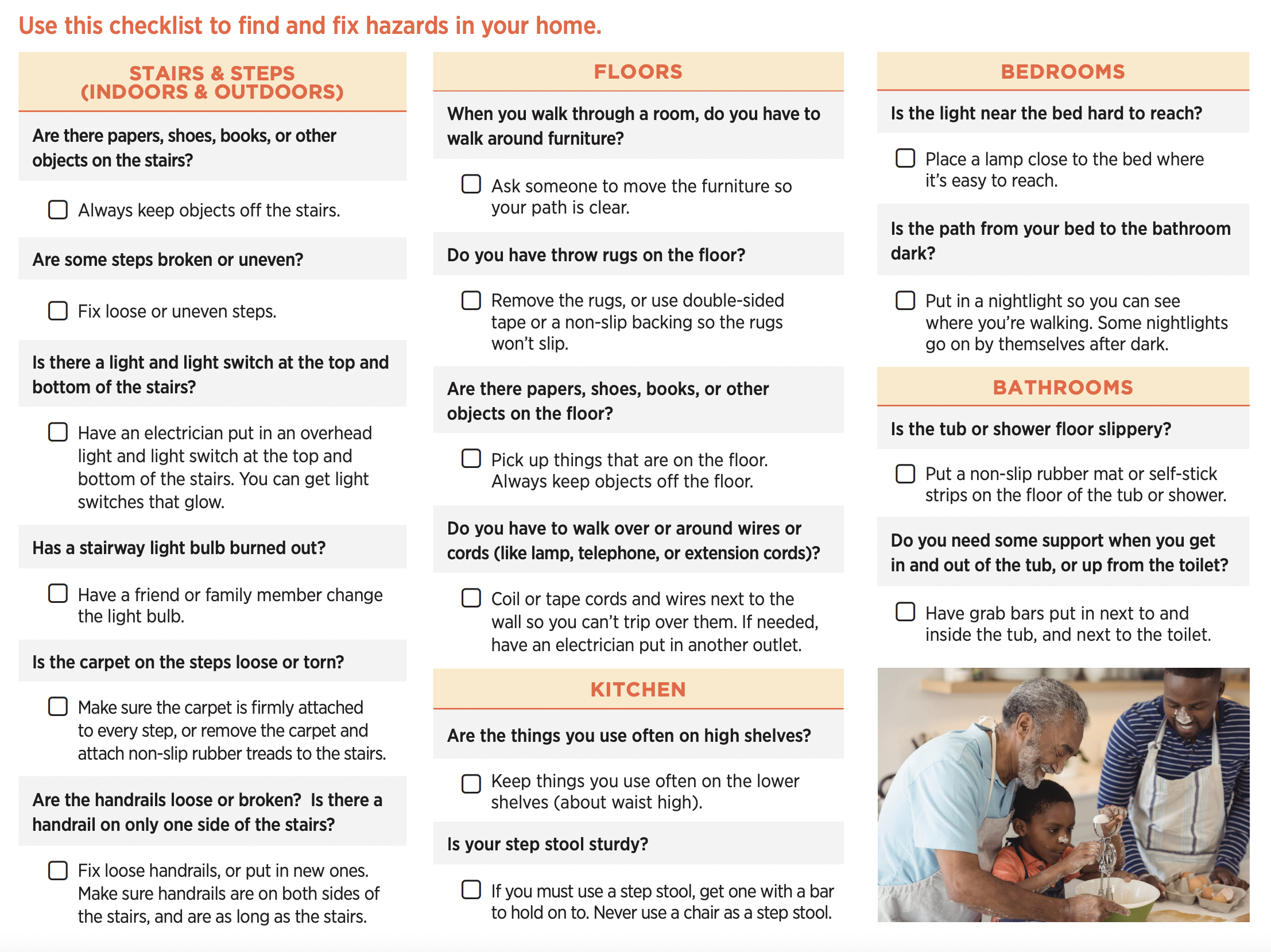The Ultimate Guide To Dementia Fall Risk
The Ultimate Guide To Dementia Fall Risk
Blog Article
Excitement About Dementia Fall Risk
Table of ContentsOur Dementia Fall Risk StatementsIndicators on Dementia Fall Risk You Should KnowNot known Incorrect Statements About Dementia Fall Risk Rumored Buzz on Dementia Fall RiskThings about Dementia Fall Risk
Nevertheless, based on symptoms and signs, such as proof of head injury or a new focal neurologic deficiency, computed tomography or MRI of the mind may be indicated - Dementia Fall Risk. An evaluation for reasons for syncope should be performed only if there is solid uncertainty, as when it comes to recurrent, unexplained drops
Doctor use a loss danger assessment to recognize your risk elements for falling and make practical suggestions. Some people try to lower their fall danger by limiting their activity or making every effort to be a lot more careful. But these sympathetic habits aren't enough. A fall threat analysis is essential due to the fact that knowing which factors enhance your possibilities of falling assists you: Reduce your danger of dropping or harming yourself.
Maximize your ability to move and be active. Maintain a healthy and balanced, independent life. All adults 65 years and older must have a first loss threat testing. Your doctor could ask you whether you: Feeling unstable when standing or strolling. Have actually dropped in the previous year. Bother with dropping. If you respond to yes to any of these concerns, your health care supplier will advise an added, more thorough evaluation.
Top Guidelines Of Dementia Fall Risk

Explore this thorough nursing treatment strategy and monitoring overview to successfully stop danger for drops amongst people. Acquire necessary understanding regarding the nursing analysis, nursing medical diagnosis, and goals specifically customized to individuals who go to danger for falls. A is defined as an event that results in an individual coming to rest inadvertently on the ground or flooring or various other reduced level (THAT, 2021).
According to the Centers for Disease Control and Prevention (CDC),, causing over 34,000 deaths for that age. Dropping is the second leading cause of fatality from unintended injuries globally. Death from drops is a serious and native to the island problem among older individuals. It is estimated that fall death prices in the united state

Every year, over 800,000 clients are hospitalized due to drops. Nurses play a significant role in stopping falls for go to the website their individuals through education, examining autumn danger, creating safer environments, and providing treatments in stopping injuries from falls. Numerous risk aspects and problems contribute to drops, including the following:. Aged 65 years and older; lower arm or leg prosthesis; use assistive gadgets such as walker, crane, and wheelchair; living alone.
Client will certainly show discerning prevention measures. Person and caretakers will certainly execute approaches to increase safety and security and avoid drops in the home. Loss are due to a number of variables, and a holistic strategy to the private and setting is necessary. Intend a person is taken into consideration at high danger for falls after the screening.
Little Known Questions About Dementia Fall Risk.
A requires utilizing a confirmed device that researchers have actually analyzed to be useful in calling the causes of falls in a person. As an individual's wellness and circumstances adjustment, review is called for. The degree of loss risk can be identified utilizing the evaluation of inherent and external aspects. Requirement analysis tools can additionally like it be made use of (discussed below).
People are most likely to fall again if they have actually sustained one or even more drops in the previous six months. The older populace is at increased threat of fall-related readmissions based upon a research recognizing the aspects anticipating of repeat drops connected outcomes (Prabhakaran et al., 2020). Persons with damaged awareness and disorientation may not understand where they are or what to do to assist themselves.
The capacity of people to protect themselves from drops is influenced by such aspects as age and growth. Older individuals with weak muscles are much more most likely to fall than those that maintain muscular tissue strength, flexibility, and endurance.
Everything about Dementia Fall Risk
Less comparison level of sensitivity was fairly related to both boosted prices of drops and other injuries, while lowered visual skill was only associated with enhanced autumn price (Wood et al., 2011). Sensory understanding of ecological stimulations is extremely important to security. Vision and hearing impairment limit the person's capacity to regard risks in the environments.
Older adults that have bad balance or problem strolling are more probable to drop. These problems may be associated with lack of workout or a neurological reason, arthritis, or various other medical conditions and therapies. An important threat variable highlighted in a research study is that adults with rheumatoid joint inflammation go to high danger of falls, consisting of inflamed and tender reduced extremity joints, exhaustion, and use psychotropic medications (Stanmore et al., 2013).
Report this page